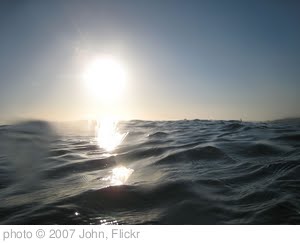International
Wall Street has been devastating Main Street for some time. And when the politicians -- most of them bought by Wall Street -- say nothing, it's called "responsible economics." But when somebody, anybody, complains about people suffering and that the political deck in official Washington has been stacked in favor of Wall Street, the accusation of class warfare quickly emerges. "Just who do these people think they are," they ask. The truth is that the people screaming about class warfare this week aren't really concerned about the warfare. They're just concerned that their class -- or the class that has bought and paid for their political careers -- continues to win the war.
So where is God in all of this? Is God into class warfare? No, of course not. God really does love us all, sinners and saints alike, rich and poor, mansion dwellers and ghetto dwellers. But the God of the Bible has a special concern for the poor and is openly suspicious of the rich. And if that is not clear in the Bible nothing is.
 I say a ceasefire can and also ought to mean that we will hold our peace, hold our tongues, intentionally muzzle ourselves, become mute in a discussion that can much too easily descend into verbal warfare. Often, when we are quiet in the face of verbal attack, the argument does not escalate into something that all parties involved will regret.
I say a ceasefire can and also ought to mean that we will hold our peace, hold our tongues, intentionally muzzle ourselves, become mute in a discussion that can much too easily descend into verbal warfare. Often, when we are quiet in the face of verbal attack, the argument does not escalate into something that all parties involved will regret.
So what makes the Troy Davis case stand out from most other death penalty cases?
Serious doubt.
Not about whether the death penalty is the appropriate punishment for Davis or has been correctly applied.
The doubt raised in Davis' case is whether he committed the crime at all. And those questions about his guilt have prompted hundreds of thousands of people to raise their voices in opposition to his execution, most recently former FBI Director William Sessions who, in an op-ed in the Atlanta Journal-Constitution Friday, called on the Georgia Board of Pardons and Paroles to commute Davis' sentence to life in prison.
Ten years on, I'm remembering the literature I read and the music that kept me going in the days and months after 9/11. I had Rumi and Whitman on my bedside table, reading them back to back, alternating between selections of the Mathnawi and poems from Leaves of Grass, sometimes feeling like the two were one, the soul of America, and that the soul of Islam were intersecting at some point beyond where the eye could see:
Whoever you are!, motion and reflection are especially for you, The divine ship sails the divine sea for you. -- Walt Whitman
Come, come, whoever you are, Wanderer, worshipper, lover of leaving, Ours is not a caravan of despair. Even if you have broken your vows a thousand times It doesn't matter Come, come yet again, come. -- Rumi
Until then, the Quran for me was a book of personal spiritual guidance, a convening symbol for my religious community. But after 9/11, I viewed it as a balm for my country's pain, especially lines from Ayat al-Kursi: "His throne extends over the heavens and the earth, and He feels no fatigue in guarding and preserving them."
There are no whirring helicopters, law enforcement vehicles, or hundreds of federal agents swooping down on businesses as in days of old. Instead, such immigration raids have been replaced by a less overtly brutal approach: "silent" raids, or audits of work eligibility I-9 forms.
But the fear remains.
At the first whisper of an employer receiving notice from U.S. Immigration and Customs Enforcement (ICE) that employees' eligibility records are about to be checked, pulses rise. Legal workers worry about being erroneously bounced out of work; unauthorized employees fear being kicked out of the country and separated from their families. Communities are shaken, business operations are disrupted, and jobs are lost. The anemic economy takes another hit.
We're sorely missing the servant leadership of America's CEOs on matters of corporate taxation.
As Congress contemplates trillions in budget cuts that will worsen poverty and undermine the quality of life in America, consider these findings from a new report that I co-authored, "Massive CEO Rewards for Tax Dodging," by the Institute for Policy Studies.
Last year, the compensation of 25 CEOs at major profitable U.S. companies was larger than the entire amount their company paid in U.S. corporate taxes.
These 25 include the CEOs of Verizon, Boeing, Honeywell, General Electric, International Paper, Prudential, eBay, Bank of New York Mellon, Ford, Motorola, Qwest Communications, Dow Chemical, and Stanley Black and Decker.
The forthcoming dedication of the national memorial monument honoring Rev. Dr. Martin Luther King, Jr., affords an opening for considering the complexity and meaning of his leadership. He was not the tamed and desiccated civil hero as often portrayed in the United States around the time of his birthday, celebrated as a national holiday. He was until the moment of his death raising issues that challenged the conventional wisdom on poverty and racism, but also concerning war and peace.
King was in St. Joseph's Infirmary, Atlanta, for exhaustion and a viral infection when it was reported that he would receive the 1964 Nobel Peace Prize. As Gary M. Pomerantz writes in Where Peachtree Meets Sweet Auburn, this was the apparent cost exacted by intelligence surveillance efforts and the pressures of learning that Attorney General Robert F. Kennedy had formally approved wiretaps by the Federal Bureau of Investigation. His evolving strength as a leader is revealed in his remarks in Norway that December, which linked the nonviolent struggle of the U.S. civil rights movement to the entire planet's need for disarmament.
It was over in less than a minute. Three miles below the surface of the earth near a town in Virginia called Mineral, a fault line shifted. As a result, a 5.8 magnitude earthquake was felt from Georgia to New England and as far west as Detroit. The National Cathedral lost several stone spires, the Washington Monument cracked, and Sojourners' office was closed for the afternoon, as our building was checked for structural damage.
Tectonic plates move beneath our feet in the part of the globe that scientists refer to as the lithosphere. Over the course of a year, an average plate will move as little as 3 to 6 centimeters. The speed of their movement is 10,000 times slower than the hour hand on a clock and even slower than the rate of growth of human hair. For decades, sometimes centuries or millennia, a plate's movement might go almost entirely unnoticed. Then, in less than a minute, the world shakes and everything changes.
The recent British film In Our Name is a returning-soldier drama featuring a married woman, Suzy, who leaves her husband and little girl to fight in Iraq. Because she's involved in the killing of a little girl during her tour-this part is based on a true story, but it happened to a man -- she returns home only to steadily fall apart under the stress of soul-destroying anxieties.
When I first visited Ethiopia at the height of the 1984 famine, I watched as twenty-four people died of starvation in less than fifteen minutes, right in front of my eyes. Barely five years into my career as a Congressman, nothing my staff told me beforehand could have prepared me for what I saw on that trip.
Gasping at awful photographs of unspeakable human suffering is one thing; bearing firsthand witness to human suffering is another thing entirely. Glancing at a picture of a starving child in the newspaper, you can always turn away, but when you're staring into the eyes of a mother who has just lost that child, it's a completely different story. There's no looking the other way.
That's why I often describe those first Ethiopia experiences as my "converting ground" on issues of global hunger. What happened in Ethiopia changed me, and changed how an entire generation looks at hunger.
It's also why I'm currently back on the Horn of Africa, reporting on the ground from the Dadaab refugee camp in eastern Kenya, less than fifty miles from the Somali border. And I am appealing to my affluent brothers and sisters in the United Stated and around the world not to look away. We need your help.
 An account in The New York Times by Ethan Bronner reports that Israeli women and West Bank Palestinian women and girls have once again broken Israeli laws. They have gone swimming in the Mediterranean Sea.
An account in The New York Times by Ethan Bronner reports that Israeli women and West Bank Palestinian women and girls have once again broken Israeli laws. They have gone swimming in the Mediterranean Sea.
More than two dozen Israeli women invited Palestinian women and girls from the southern part of the West Bank of the Jordan River -- who are not normally allowed into Israel and have no access to the sea -- to go swimming with them. Under Israeli military occupation since 1967, according to Bronner, "most had never seen the sea before."
The Olympics is the greatest representation of national athletic pride. Somehow every couple of years, patriotism is met with a degree of innocence and acceptance that is too often forgotten in conflict and negotiation.
Five years ago, Afghanistan re-entered international basketball when the county's Olympic committee decided to draft a team for the 2006 Asian Games. A year later, the committee hired Mamo Rafiq, who was the first Afghan immigrant to play in the NCAA first for Idaho State and then UC Davis.
 Whenever I give talks on the effects of the Israeli occupation on Palestinian livelihood, the status of nonviolence as a means to resisting the occupation, and how I believe nonviolence is the only way to move forward to resolve the conflict and create a lasting peace between Israelis and Palestinians, one of the first and immediate questions I get from foreign visitors to my office in Bethlehem is, What you said is good, but what about the Muslims? Do they also believe in nonviolence? Do they understand it?" Even if I don't mention religion in my presentation -- and I rarely do -- this question always seems to make its way in our discussions.
Whenever I give talks on the effects of the Israeli occupation on Palestinian livelihood, the status of nonviolence as a means to resisting the occupation, and how I believe nonviolence is the only way to move forward to resolve the conflict and create a lasting peace between Israelis and Palestinians, one of the first and immediate questions I get from foreign visitors to my office in Bethlehem is, What you said is good, but what about the Muslims? Do they also believe in nonviolence? Do they understand it?" Even if I don't mention religion in my presentation -- and I rarely do -- this question always seems to make its way in our discussions.
Similar to many of my Western counterparts, my first thoughts when I first heard about the attacks in Norway went to extreme Islamic terrorism. I had heard about the growing tensions in Scandinavia because of the increasing Muslim population and cultural shifts arising as a result. Thus, when I heard through a friend that a Norwegian school had been attacked, I assumed the attack to be a response from a Muslim terrorist group. I asked if it was al Qaeda or such other organization. My friend responded, "Probably." Thus, you can imagine my surprise when I saw the picture of the suspect who appeared very Scandinavian with fair skin and complexion.
According to the New York Times, the attacks in Oslo killed at least 92 people and the orchestrator left behind "a detailed manifesto outlining preparations and calling for Christian war to defend Europe against the threat of Muslim domination." If I had read that statement out of context, I would think one was talking about the Christian Crusades of the 12th century.
In response to Sojourners' radio ads about the budget debates, the Family Research Council's political action committee has launched radio ads in Kentucky and Ohio arguing that deficit reduction should cut programs that serve poor and vulnerable people. The ads assert that it is the private individual, not government, who has a responsibility to the poor. The ads say, "Jesus didn't instruct the government of his day to take the rich young ruler's property and redistribute it to the poor. He asked the ruler to sell his possessions and help the poor. Charity is an individual choice, not a government mandate."
This could put the speaker of the House, a Catholic, in a difficult position. Catholic social teaching instructs that the government does have a direct responsibility to the poor and that private charity is only one of the ways that Christians express concern for "the least of these." This ad sets itself in direct opposition to that teaching and the values that it comes from. The speaker was already in a tough spot when the Catholic bishops came out with a strong critique of the House plan, but now he has a powerful political organization calling for him to ignore Catholic social teaching all together.
Bamiyan is a central Afghan town, home to two monumental Buddha statues carved out of sandstone cliffs. In a zealous attempt to purge anything considered un-Islamic, the Taliban targeted these historic statues a decade ago when they occupied and controlled Afghanistan. The defamation of non-Islamic monuments and sites caused a global response. The efforts of national leaders failed, and the Taliban destroyed the statues in March, 2001. The world community -- from Russia to Malaysia, from Germany to Sri Lanka -- expressed horror at the Buddha's demolition.
Sitting over the Bamiyan Valley since the early sixth century, one of the Buddha figures stood nearly 180 feet tall and the other 120 feet. Before their destruction, these statues were the largest Buddha carvings in the world. They were once a major tourist attraction, but the decades of conflict drove away tourists years before the Taliban blew up the statues.

- How do you like your chocolate chip cookies? (Personally, I prefer thick, chewy, and not too sweet.)
- Are you a stay-at-home dad?
- Learn more about new media and faith.
- Religious groups are part of the suit against Alabama immigration law (hat tip: CCIR).
- The changing face of AIDS.
